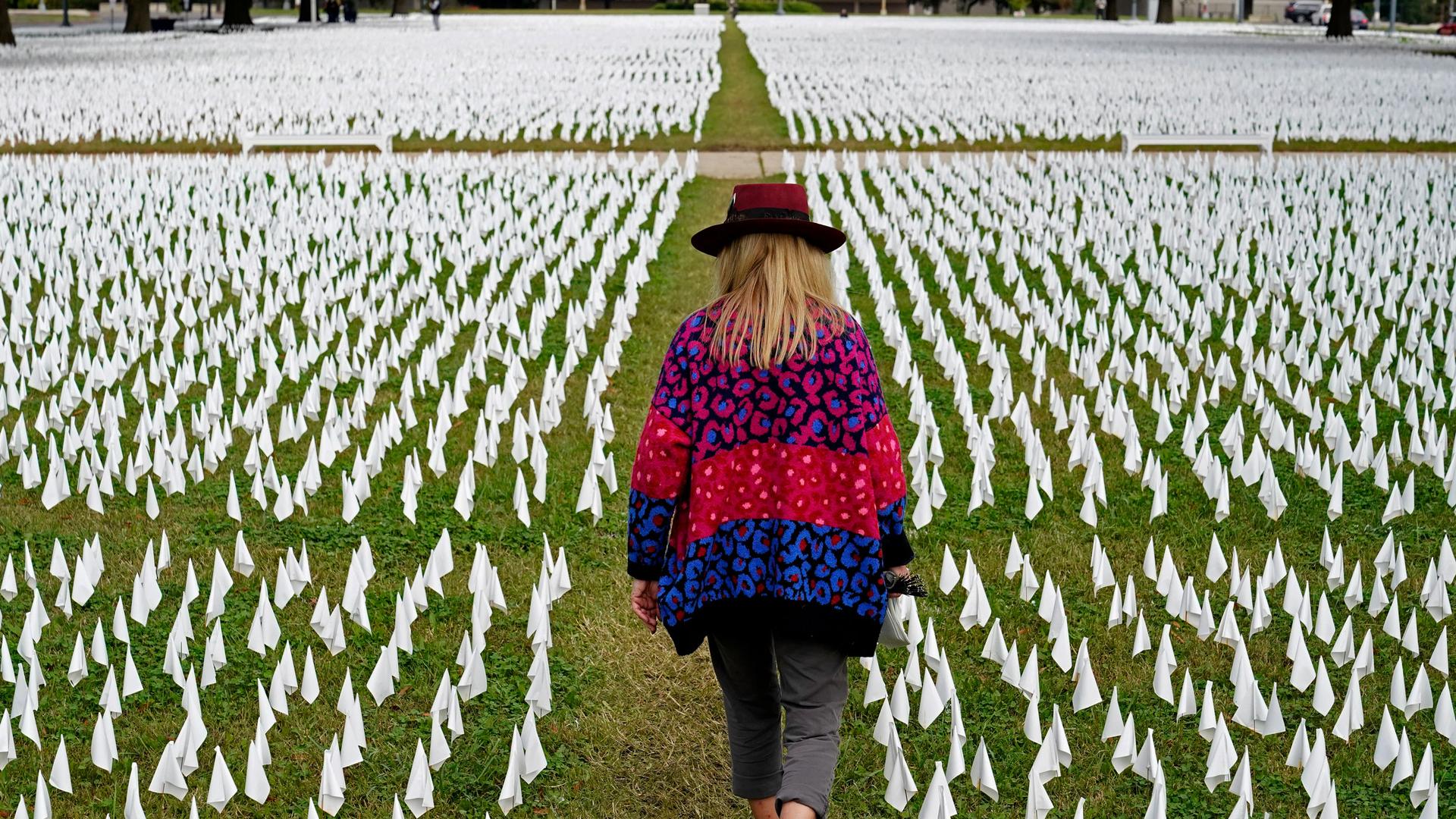Discussion: The year ahead in the coronavirus pandemic
Artist Suzanne Brennan Firstenberg walks among thousands of white flags planted in remembrance of Americans who have died of COVID-19 near Robert F. Kennedy Memorial Stadium in Washington. The US death toll from the coronavirus topped 300,000 on Dec. 14, just as the country began dispensing COVID-19 shots.
The US death toll from the coronavirus topped 300,000 Monday just as the country began dispensing COVID-19 shots in a monumental campaign to conquer the outbreak.
The number of dead in the US is more than five times the number of Americans killed in the Vietnam War or equal to a 9/11 attack every day for more than 100 days.
“The numbers are staggering — the most impactful respiratory pandemic that we have experienced in over 102 years, since the iconic 1918 Spanish flu,” Dr. Anthony Fauci, the government’s top infectious-disease expert, said days before the milestone.
Globally, the virus is blamed for more than 1.6 million deaths with the US accounting for nearly one out of five confirmed virus deaths worldwide, far more than any other country despite its wealth and medical resources.
Related discussion: Airborne transmission, ventilation, and reopening schools and workplaces
What will the next year bring in the coronavirus pandemic? Will the anticipation of an imminent vaccine and so-called “coronavirus fatigue” cause people to become lax when it comes to social distancing and masking? Have public health officials and scientists become disillusioned by the public’s response?
As part of The World’s regular series of conversations about COVID-19, reporter Elana Gordon moderated a discussion with Harvard epidemiologist Michael Mina.
This conversation is presented in partnership with Harvard’s T.H. Chan School of Public Health.
The AP contributed to this post.
